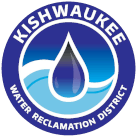Info for Business/Industry
-
How Do I Annex or Connect to the KWRD?
If you own property contiguous to the District, you may petition the Board of Trustees to annex to the District and receive its services. In rare instances, property near by not contiguous to the District can be pre-annexed. If the Board approves the annexation, fees are $3,000 per acre.
To accommodate the demand of new construction on the wastewater system, a connection fee is assessed on each new hookup. The fee is $600 per Population Equivalent (P.E.), defined by the EPA is 100 gallons of wastewater per day. LEARN ABOUT BUILDING IN THE DISTRICT
For more information about pre-annexation, annexation, and connection, contact Executive Director Mark Eddington, P.E., at (815) 758-3513. MAP OF DISTRICT BOUNDARIES
-
What Do I Need to Know About Industrial Discharge
It’s a federal crime to discharge pollutants into US waterways without a National Pollution Discharge Elimination System (NPDES) permit. Regulated pollutants include solid waste, sewage, garbage, sludge, chemical waste, biological material, radioactive material, rock and sand, heat, and industrial, municipal, or agricultural waste.
The KWRD holds NPDES Permit Number #IL0023027, permitting us to discharge treated wastewater into the south branch of the Kishwaukee River.
Through the Local Limits Program, the KWRD regulates industrial discharge that enters the collection system to make sure it meets the limits of our permit.
We monitor “significant industrial users.” Because of the type or amount of pollutants these industries produce, they are subject to regular testing of their wastewater as a condition of their permit to discharge to the District. Industries may be required to pretreat their effluent to reduce the amount of pollutants before discharging it. MORE ABOUT INDUSTRIAL PRETREATMENT
Direct questions about industrial pretreatment to Executive Director Mark Eddington, P.E., at (815) 758-3513.
-
What Happens If I Flush My Restaurant Grease Down the Drain?
District personnel often find backed up sewer mains are blocked by grease from nearby restaurants. The business responsible for such a blockage is liable for the costs of cleaning and clearing the sewer line and may be fined up to $1,000 per day. They may also be liable for damage to surrounding properties caused by the sewer backup.
Offending restaurants may be required to install a larger, more efficient grease trap. If the District determines a restaurant’s grease discharge presents an imminent threat to the health or safety of the population, the offending restaurant might be disconnected from sewer service until the issue is resolved.
If you are building or remodeling a restaurant of any size, contact Executive Director Mark Eddington, P.E., at (815) 758-3513 for an appointment to discuss GREASE TRAP SPECIFICATIONS.
-
How Can I Safely Dispose of Restaurant Grease?
Collect the fats, oils, and grease used to prepare food in an external bin and arrange for it to be hauled away by a scavenger company for proper disposal.
Never pour used grease, fats, or oils down the drain. Adding hot water, detergent, or commercial de-greasers won’t help. By the time the liquefied grease enters the public system, it will cool and congeal, plugging up the line.
The District makes unscheduled, random visits to businesses holding food service licenses. On these random inspections, District staff makes sure grease traps are in good condition, are being cleaned regularly, and that grease is being removed on an appropriate schedule. Staff will also verify that restaurants are not using hot water or de-greasers to liquefy fat so it flows through the grease trap. This sidesteps the purpose of the grease trap and is not allowed.
If you are building or remodeling a restaurant of any size, contact Executive Director Mark Eddington, P.E., at (815) 758-3513 for an appointment to discuss GREASE TRAP SPECIFICATIONS.
-
Where Can I Dump Hauled Wastewater Like Grease or Septage?
Dumping of RV waste, septage, port-a-potty waste, restaurant grease, or any other hauled liquid waste is allowed ONLY at the KWRD's wastewater treatment plant, located at 1301 Sycamore Rd in DeKalb, IL. Hauled wastewatear may never be discharged into manholes or catch basins. MORE INFO ON WASTEWATER HAULING
Wastewater may be dumped from 7 a.m. to 3 p.m. Monday through Friday, except holidays. Afterhours dumping can be accommodated for an additional fee. Tank trucks can be no larger than 3,000 gallons unless otherwise approved. HAULED WASTEWATER RULES AND REGULATIONS
You do not need an appointment to dump septage or port-a-potty waste, but you must notify the District at least 30 minutes before arriving to discharge fats, oils, or grease. The hauler must provide a sample of the waste being discharged for testing and a manifest documenting when and where the wastewater was received.
The District must approve your application before you will be allowed to discharge hauled waste. APPLY FOR A PERMIT
Contact us
Footer form
We will get back to you as soon as possible.
Please try again later.
Kishwaukee Water Reclamation District | All Rights Reserved |
Created by Olive + Ash.
Managed by Olive Street Design.

